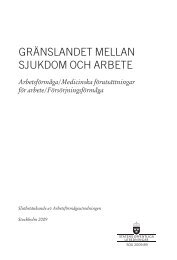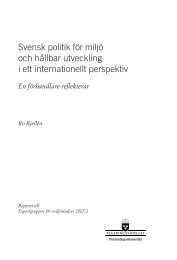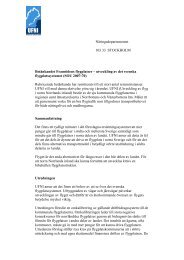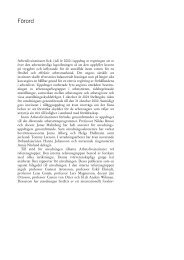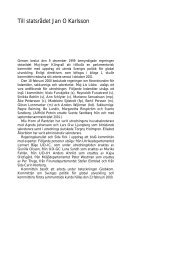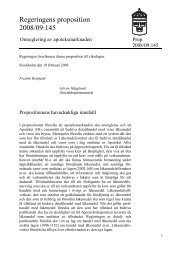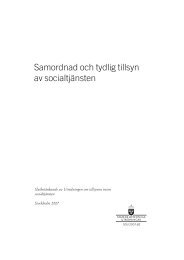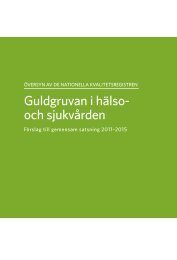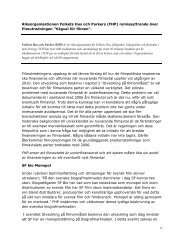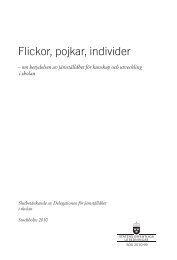Att lära för hållbar utveckling - Regeringen
Att lära för hållbar utveckling - Regeringen
Att lära för hållbar utveckling - Regeringen
You also want an ePaper? Increase the reach of your titles
YUMPU automatically turns print PDFs into web optimized ePapers that Google loves.
Summary SOU 2004:104largely within the EU and the OECD and only to a lesser degreewith developing countries.There appears to be scope for greater interdisciplinarycooperation. Interdisciplinary working methods appear to be mostcommon in pre-school and the earlier years of compulsory school.In the later years of compulsory school and at upper secondaryschool, interdisciplinary cooperation is not so common. Manyinstitutions have begun to focus on environmental issues and thishas meant that important steps have been taken in education forsustainable development. We note, however, that the integration ofeconomic, social and environmental dimensions that we considernecessary has still not made itself felt on any wider front. Teachersare expressing uncertainty about how the sustainable developmentperspective should be made more concrete in educational activitiesand teaching situations and are seeking relevant in-service training.Studies suggest that young people have good knowledge of thedemocratic system and of the basic values of society, but there areshortcomings in the application of these basic values. A holisticapproach and critical thinking are considered to be poorlydeveloped qualities among the young, according to the studies. Thereview in the chapter shows that young people in Sweden are moreinterested in taking part in political elections than young people incomparable countries. The tendency to take an active part in socialchange is, however, less pronounced among young people than it isamong adults. There are also signs that young people’s interest inpolitics is declining. But this could be connected to a distrust oftraditional forms of activity since many young people say at thesame time that they are interested in development issues and theenvironment.Young Swedes seem to have a more tolerant attitude towardshomosexuals and immigrants than the young people in most othercountries. Furthermore, young people are more tolerant thanadults. Pupils do abuse each other, as do adults and pupils, eventhough most teachers and pupils say they are happy and feel securein their daily activities.In the studies presented in the chapter, girls appear to be moremotivated and better prepared to contribute to sustainabledevelopment than boys. Girls express a greater desire to influencetheir education, they know more about democracy and humanrights, have a greater capacity for holistic thinking, are moretolerant and abuse others to a lesser degree.24




